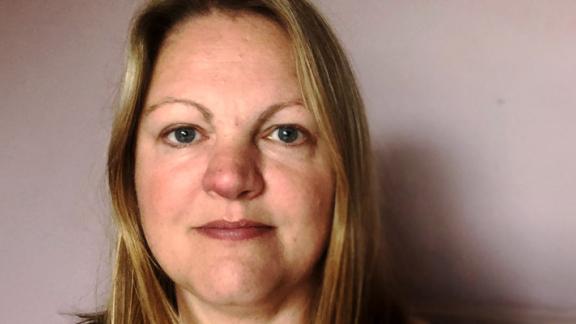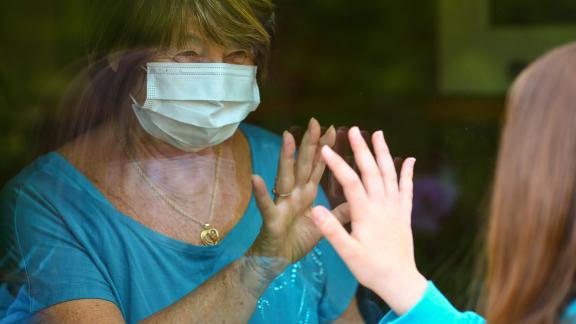NHS Reset: A silver lining to the COVID cloud?

NHS Reset is an NHS Confederation campaign to help shape what the health and care system should look like in the aftermath of the pandemic.
In this blog, Christine Price, chief officer of Healthwatch Herefordshire, reflects on the county’s efforts to respond to COVID-19 across local systems, and how there may be national lessons to learn from the local response.
In Herefordshire we have seen COVID-19 cases at a lower rate than elsewhere. The peak also reached our rural county a little later than in neighbouring urban areas such as Birmingham. However, the combined efforts of the local authority, NHS and voluntary and community sector (VCS) managed well to prepare for the impact on the community.
In particular, we have been impressed by our local authority's Talk Community initiative to work with the VCS, coordinating the volunteers and the requests for help. Community needs were very varied, such as accessing food and medication, buddying support, befriending and even help with pets. The people in need have ranged from those who chose to stop domiciliary care due to increased COVID-19 risk, to people who were shielding or people who needed to self-isolate due to suspected COVID-19.
Local authority ahead of national initiatives
The local authority and NHS have also worked hard to discharge people from hospital and create capacity. Additional community facilities were set up as a contingency, including a hotel for high-intensity domiciliary care needs, and community beds in an additional facility. The way the combined system moved at pace to do this has been exemplary.
What has struck us is that the local system has done everything it has needed to do, while at the same time melding the offers of support to the community around the national efforts - and this filtered down to councils around the shielding group, the NHS volunteer scheme and testing initiatives. We feel that the local authority has been ahead of the national initiatives. These were very important, but some were slow to arrive and not always in the form that had the best impact locally. We think there may be lessons to learn nationally from local councils who know their local areas best.
The local offer that the council has provided for the care sector in the form of support, advice, training, and a local PPE supply has been excellent. It is reassuring to know that there has been a firm grip on the quality and standards in care homes, thus keeping the community and workforce as safe as possible – and it’s important to maintain that.
Ensuring the right messaging
Healthwatch played a role in supporting the VCS response to COVID-19 with the local authority and NHS, helping with our information, advice and campaigns to ensure the right local and national messages for the public have been given. Key stakeholders have kept us informed about the systems capabilities and planning for COVID-19 and listened to our advice. We have been asking the public for their views of services during the pandemic, and regularly feeding the evidence back to key stakeholders.
As we at Healthwatch look further forward, we are keen to be involved in the planning of how services start to address many of the healthcare and other activities that have been reduced or suspended during the pandemic. For example, addressing the backlog of people waiting for elective surgery and routine primary care surveillance.
Some of the opportunities for the future we see arising from the pandemic also come with concerns. For example, the NHS, in particular, has made many positive rapid changes in a matter of weeks that were actually planned over years in the NHS Long Term Plan, such as the digitisation of access to services. This has been welcomed by many patients, who have said they would like this kind of change to remain in the future, however we must ensure that those without internet access are properly catered for.
Meaningful conversations
We will support the health and care system wherever possible in having meaningful conversations with the public about what changes and innovations we keep in the aftermath of the pandemic, ensuring we are listening to all the communities we serve. We must make sure there is a range of options for patients and that health inequalities have not been created as a result of the changes introduced during the pandemic. We must also consider carefully what needs to return to the methods used before the pandemic. We need to think about what further changes can be considered for the future and what will work for the public. All this will involve wide engagement and communication with the public across the system. There is an important role for Healthwatch in this to provide a voice for all; to help the public understand change processes and what progress is being made; as well as sharing our insight – both good and bad – with services so that they understand the impact on people.
One of the positive outcomes during COVID-19 has been increased integration and joint working between parts of the NHS and the local authority. They have been excellent at planning ahead, communicating across organisations and have been nimble and responsive. This has meant seeing improvements to the liaison between hospital discharge and social care, admission avoidance procedures and the multidisciplinary team working of primary care networks. Healthwatch hopes that the changes to structures and governance systems that have enabled this type of culture change can be harnessed and that the momentum can be maintained into the future.
Christine Price is chief officer at Healthwatch Herefordshire. You can follow the organisation on Twitter @HWHerefordshire

